Department of Health and Community Services
Health Issues
Let’s Stop HIV Together
The Centers for Disease Control and Prevention has announced the Let’s Stop HIV Together Campaign to raise awareness about HIV and its impact on the lives of all Americans. For more information and to Act Against AIDS…
Lyme Disease
Center For Disease Control (CDC) Frequently Asked Questions
Boil Water Advisory Guidelines
ALERT: NJ Residents May Be At Risk for Weather Related Carbon Monoxide Poisoning
Tips for Year-Round Prescription Safety for All Ages
Myths About Poison Ivy
Guidelines for Proper Disposal of Household Medication
Weather Related Carbon Monoxide Poisoning
Parent Ground Rules for Trick or Treating
NJ DHSS Encourages All Residents to Get Annual Flu Shots
Protect Your Family From Lead-Based Paint Poisoning
Poison Control Center: Medicines and Children
Underage Tobbaco Sales
Protect Yourself From Skin Cancer
Skin cancer is the most common cancer in the United States. Excessive exposure to sunlight may increase your risk to develop skin cancer or melanoma.
For more information click here
Smart Food Safety Practices Can Avoid
Summertime Foodborne Illness
Lamp Oils Can Be Deadly for Children
Click here to learn how and why to keep children away from lamps, lanterns, and torch lights
Prevent or Overcome Obesity
Visit the following website to offer tips to prevent or overcome obesity and promote community wellness. For more information on the Small Step Program
Blood Cholesterol Awareness
The American Heart Association has recently published statistics that identified heart disease as the leading cause of death in the United States. One modifiable risk factor for heart disease is high blood cholesterol. Blood cholesterol can be reduced through lifestyle changes such as dietary improvements, physical activity, weight control, drug therapy, or a combination of these measures.
The Center for Disease Control recommends that adults have a complete fasting lipid profile completed by a physician at least once every five years. Individuals with multiple risk factors for heart disease such as high blood pressure or family history of heart disease are especially encouraged to take action to increase their awareness of acceptable blood cholesterol levels. The American Heart Association maintains information on the prevention of heart disease and stroke at www.americanheart.org.
For an informational booklet on high blood cholesterol, visit the National Cholesterol Education.
Emerging Problem in New Jersey, Illegal Unregistered Pesticide Products
The New Jersey Department of Environmental Protection (NJDEP) is partnering with CEHA county health agencies in an initiative to investigate the sale of illegal pesticides products commonly sold in small neighborhood grocery stores (bodegas), dollar stores, hardware stores and on the street, particularly in urban areas. In 2005, several CEHA agencies have been asked to conduct a small number of investigations, and the Hudson Regional Health Commission has completed inspections of 49 retail establishments, reporting all findings to NJDEP. In Hudson County, 16% (8/49) of the locations visited had illegal, improperly labeled, or unregistered pesticide products available for retail sale. Inspections were conducted in a variety of areas, though 5 of 8 facilities (62%) with dangerous products were located in Hispanic neighborhoods. Illegal products were often imported from China or Mexico. However, one product labeled, “Made in the USA”, looks like a mouthwash but contains toxic ingredients and is actually a disinfectant for floors and other surfaces.
Illegal pesticide products often come in familiar shapes and packaging. Some common products identified are chinese chalk (insecticide chalk) which resembles black board chalk, “Tres Pasitos” a rodenticide, counterfeit flea and tick repellents for pets, antibacterial cleansers and mothballs, which pose a hazard to young children since some are packaged using bright colors which can be easily mistaken for candy, or simply tempt young children to touch and play with them. Recent studies have linked naphthalene, the chemical used in mothballs, to certain illnesses, including nasal cancer.
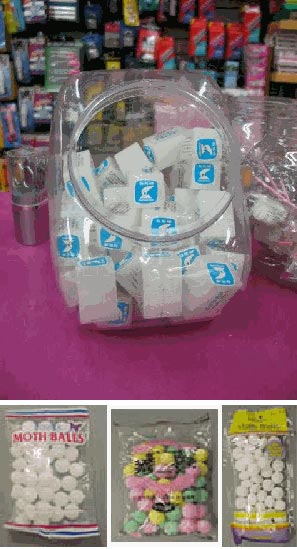
Mothballs – children may be mistake them for candy
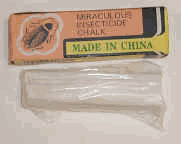
Chinese Chalk may be mistaken for candy or play chalk.
Illegal pesticides are often much more toxic than registered pesticides, some have varying ingredients, their labels often have no clear directions or precautions despite claims of being
Restricted Use Pesticide (RUP) that can only be purchased and applied by a certified pesticides applicator. See web link to view DEP Pesticides listing of RUPs: http://www.pcpnj.org/.
Though the illegal products may look similar to and make the same claims as those legally registered, these products have not been thoroughly tested, and their labels have not been reviewed by the USEPA for clear directions and safety warnings. Labels of products containing registered pesticides will have USEPA Registration and Establishment numbers, directions for use and precautions.
When investigating the sale of illegal pesticides, NJDEP or county inspector will look for products that claim to have pesticide properties, check for the proper EPA registration numbers and verify that the pesticide is appropriate for use in homes (i.e. they are not a farm pesticide). They will take digital photographs of the product, attempt to secure a copy of the product invoice from the store owner. The NJDEP Pesticide Control Program is responsible for further investigations and taking enforcement action against the companies and stores selling the products. The USEPA has also increased enforcement actions against companies selling or distributing illegal household pesticides and has increased efforts to raise public awareness of these product dangers, their website can be accessed at Pesticides | US EPA
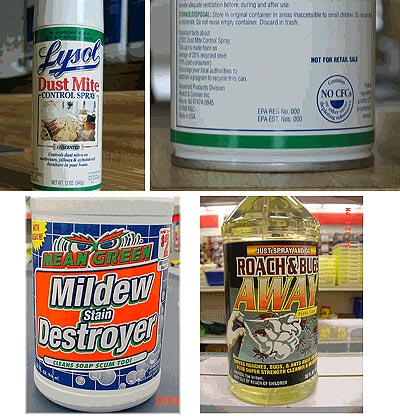
Products claiming pesticidal properties (including bactericides, insecticides or herbicides)
must have a valid USEPA Registration #, these do not.
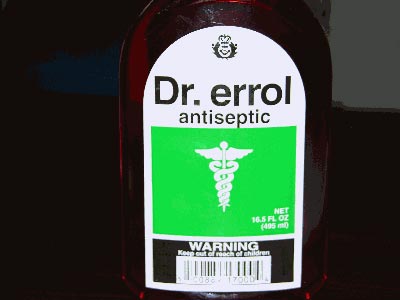
Improper labeling creates a risk of poisoning.
This antiseptic floor cleaner may easily be mistaken for mouthwash.
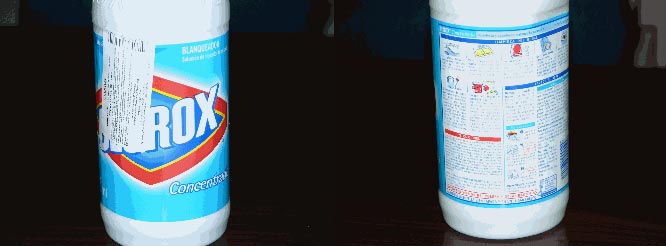
Products intended for use outside the US may not be labeled for sale in this country.
The label on this product states it will kill the germ that causes cholera but it is not a registered product in the US.
For additional information contact NJDEP – Bureau of Pesticides Compliance at (609) 984-6507 or access their webpage at NJDEP-Compliance and Enforcement – Bureau of Pesticide Compliance. If you would like to report a product suspected of containing illegal pesticides, please contact NJDEP – Bureau of Pesticides Compliance enforcement at (609) 984-6568.
